Wednesday, January 13, 2021

Andria Apostolou, PhD, MPH
Since 2014, Dr. Apostolou has served as the Indian Health Service National STD Program lead. She is also a senior epidemiologist with the Division of Epidemiology and Disease Prevention working on a variety of public health projects including immunizations and, currently, on Covid-19 response. Dr. Apostolou was previously with the Centers for Disease Control and Prevention as a Health Systems Integration Scholar and as an Epidemic Intelligence Service Officer assigned to the New Jersey Department of Health.
Dr. Apostolou holds a PhD in Molecular Medicine from the University of Maryland and an MPH in Biostatistics and Epidemiology from the Johns Hopkins School of Public Health.
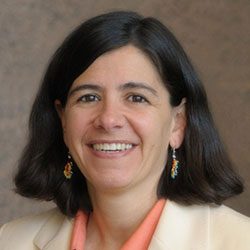
Sheila A. Caldwell, Ph.D.
Dr. Caldwell is a Program Director in the Divison for Research Capacity Building within the National Institute of General Medical Sciences. Dr. Caldwell manages IDeA Networks of Biomedical Research (INBRE) and Centers of Biomedical Research Excellence (COBRA) grants. In addition, she directs the trans-NIH Native American Research Centers for Health (NARCH) program. Dr. Caldwell earned a Ph.D. in Molecular and Cellular Oncology from George Washington University. Dr. Caldwell conducted postdoctoral reserach at the National Cancer Institute.
Wednesday, December 9, 2020

Jamie Ritchey, PhD, MPH
Dr. Ritchey is the Tribal Epidemiology Center Director at the Inter Tribal Council of Arizona, Inc. She has held this position for over eight years and provides public health technical assistance and training for American Indian Tribes in the Indian Health Service Phoenix and Tucson Service Areas. She has advanced training and technical experience in epidemiology, design methodologies, social and behavioral health theory, grant writing and reporting, program evaluation, and chronic, infectious, injury, and behavioral health programming.
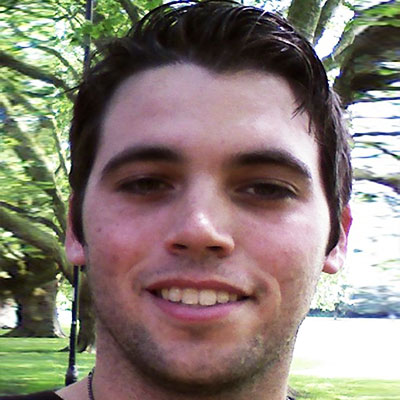
Jonathan Davis, PhD
Dr. Davis is the Geospatial Data Analyst and Program Manager for the Inter Tribal Council of Arizona, Inc. He has held this position since 2014. Dr. Davis received his PhD in Geography from Arizona State University in 2020. His research interests include qualitative methods, evaluation, digital storytelling, geospatial analysis, community based decision making, and Geodesign.
Wednesday, November 18, 2020

Harrison Platero
Mr. Platero is Diné from Canõncito Band of Navajo. His homeland is located west of Albuquerque in New Mexico. He has been a member of the Native Research Network (NRN) since its inception. Mr. Platero beleives in the mission and objectives of the NRN organization to serve professional researchers and Native communities.
Mr. Platero has contributed his services to health initiatives and education. For over 25 years, Mr. Platero has served the community through efforts ranging from health promotion to disease prevention. He has also worked with Native American populations in the southwest by assisting other professional researchers with language and cultural translation.
Formerly, Mr. Platero worked at John Hopkins University. He now works at the University of New Mexico in the sporting events department, though he has been furloughed in response to the Covid-19 pandemic. He is also a research assistance with JHU with a focus on the prevention of obesity and diabetes among Native communities.
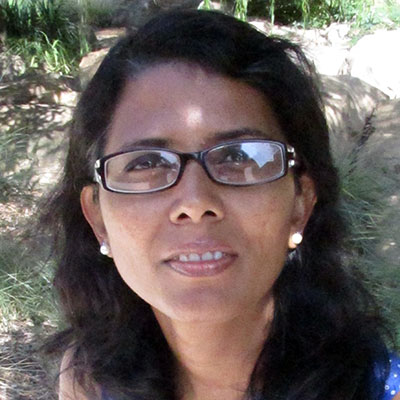
Arun Balajee, Ph.D.
Dr. Balajee currently leads the Technical Assistance team, Tribal Support Section in the Centers for Disease Control (CDC) COVID19 response. She recently deployed to Navajo Nation and Hopi Tribe to support the COVID19 response. Through the work with the Hope Tribe, Dr. Balajee and her reserach team published two reports in the CDC’s weekly epidemiological digest, The Morbidity and Mortality Weekly Report (MMWR).
When not working in the COVID19 response, Dr. Balajee is the Associate Director of Global Health Sciences in the Division of Viral Diseases in the National Center for Immunization and Respiratory Diseases, CDC. Dr. Balajee leads a team of experts whose work includes setting up early warning surveillance systems in multiple countries to better prepare countries for the next pandemic if one arises.

David R. Wilson, Ph.D.
Dr. Wilson was appointed as the first Director of the Tribal Health Research Office (THRO) in January 2017. In this leadership role, Dr. Wilson brings together representatives from the NIH ICOs to leverage trans-NIH resources and build collaborations through the research portfolio to address tribal health concerns. He works to build a unified NIH presence with which to engage and ensure input from tribal leaders across the nation, and aims to expand training opportunities for American Indian and Alaska Native communities. Dr. Wilson comes to the NIH Office of the Director from the Department of Health and Human Services Office of Minority Health where he served as Public Health Advisor and the American Indian/Alaska Native Policy Lead.
Dr. Wilson graduated with a Ph.D. in molecular and cellular biology from Arizona State University. His commitment to encouraging underrepresented minorities to pursue careers in science began when he was a graduate student and Regent’s scholar working with high school and community college students in the Four Corners area. Dr. Wilson completed a three-year postdoc, and served as a senior research scientist at the National Institute on Aging. He also serves as an adjunct professor at the Johns Hopkins School of Public Health at the Center for American Indian Health.

Rachael Tracy, MPH
Ms. Tracy is a proud member of the Navajo Nation. She received her M.P.H. from the University of Oklahoma and her B.S. from Arizona State University. Currently, Ms. Tracy serves as the Indian Health Service Health Research Director and Chair of the National Institutional Review Board. Her professional career has taken her down the path of 25 years of public service at the Indian Health Service, National Institutes of Health, California Rural Indian Health Board, and Inter Tribal Council of Arizona, where she has gained expertise in public health, community health, health education, and research translation and implementation science, and human research protections. Ms. Tracy has had the honor of working with American Indian, Alaska Native, Native Hawaiian, Filipino, Latino, and African American communities throughout the United States.

Frank Morgan
Frank Morgan is of the Salt Clan, born for Yucca Fruit People. His maternal grandfathers are Ledge of Mountain Clan and paternal grandfathers are Manygoats Clan. Mr. Morgan grew up in the Four Corners area on a farm and sheep ranch. He is a Navajo raised in the traditional way of life.
Mr. Morgan went to a BIA school and public school. He studied at the University of New Mexico, Southwestern Oklahoma State University, and Fort Lewis College. His studies led to an ethnographic research career in which his knowledge of Navajo culture and language became his primary means in his work. Mr. Morgan is a translator, interpreter, curriculum writer, health educator, and organizational trainer. He believes that everyone should know how to speak, read and write his or her traditional language. Through the knowing of one’s traditional language can personal identity, strength and stability be instilled.
Wednesday, October 21, 2020

Open Prayer:
Frank Morgan
Frank Morgan is of the Salt Clan, born for Yucca Fruit People. His maternal grandfathers are Ledge of Mountain Clan and paternal grandfathers are Manygoats Clan. Mr. Morgan grew up in the Four Corners area on a farm and sheep ranch. He is a Navajo raised in the traditional way of life.
Mr. Morgan went to a BIA school and public school. He studied at the University of New Mexico, Southwestern Oklahoma State University, and Fort Lewis College. His studies led to an ethnographic research career in which his knowledge of Navajo culture and language became his primary means in his work. Mr. Morgan is a translator, interpreter, curriculum writer, health educator, and organizational trainer. He believes that everyone should know how to speak, read and write his or her traditional language. Through the knowing of one’s traditional language can personal identity, strength and stability be instilled.

Keynote Speaker:
Yvette Roubideaux, MD, MPH, Vice President for Research and Director of the Policy Research Center, NCAI
Dr. Yvette Roubideaux (Rosebud Sioux/Standing Rock Sioux) is the Vice President for Research and Director of the Policy Research Center at the National Congress of American Indians (NCAI). The mission of the NCAI Policy Research Center is to provide tribal leaders with the best available knowledge to make strategically proactive policy decisions in a framework of Native wisdom that positively impact the future of Native peoples. Her prior work includes research, education, health systems administration, and policy development in the areas of American Indian/Alaska Native health and the quality of diabetes care. She served in the Obama Administration as a Senior Advisor to the HHS Secretary for American Indians and Alaska Natives and as the Director of the Indian Health Service (IHS). She is an Adjunct Professor in the Department of Health Systems, Management, and Policy in the Colorado School of Public Health at the University of Colorado, and her previous academic appointments include Clinical Professor and Associate Dean for Diversity, Inclusion and Leadership at the Elson S. Floyd College of Medicine at Washington State University, and Assistant Professor at the University of Arizona College of Medicine and Zuckerman College of Public Health. Dr. Roubideaux served as the co-director of the Coordinating Center for the IHS Special Diabetes Program for Indians Diabetes and Cardiovascular Disease Prevention Demonstration Projects, directed training programs to encourage American Indian and Alaska Native students to enter health and research professions, is a founder of the Native Research Network, Inc., and served as President of the Association of American Indian Physicians. Dr. Roubideaux received her undergraduate, medical, and public health degrees at Harvard, is the author of several peer-reviewed research publications, and co-edited the 2001 book, Promises to Keep: Public Health Policy for American Indians and Alaska Natives.

Speaker:
Dan Calac, MD
Dan Calac, MD, has served as Chief Medical Officer of Indian Health Council, Inc. (IHC), a consortium of nine tribes located in North County San Diego since 2003. The IHC provides on-site and outreach services and programs to nearly 5,000 clients and provides over 20,000 visits per year. Also, since 2003, Dr. Calac also serves as Principal Investigator with the California Native American Research Centers for Health (NARCH) whose goals are to increase the quantity and quality of research on the health of Native Americans in California and to increase the number of Native American students and faculty in California universities.
The research that Dr. Calac is involved in builds capacity and strengthens relationships with academic partners to promote further studies within the high-risk population he serves. Additionally, his work addresses health disparities among Native populations and introduces methods utilizing community based participatory research to reduce disparities and increase the health literacy of this population.
Dr. Calac received his medical degree from Harvard Medical School and did both internship and residency in internal medicine and pediatrics at the Combined Internal Medicine/Pediatrics Residency Program at University of Southern California/Los Angeles County (USC-LAC).
Dr. Calac has numerous publications; serves on many boards, committees and councils; and speaks to many groups across the country.
Panel Session:
Traditional Indigenous Medicine and Research
The panel will discuss traditional Native medicine in the context of research among Native communities. Traditional medicine (TM) includes such components as daily practices of personal smudging or prayer, use of herbs, food as medicine, and sacred dance or songs. Among other discussion questions, panelists will address if there is a place for TM in research as we know it, how to integrate TM into research, and how to modify research methods to allow TM guidance for a more meaningful outcome in Native communities.

Babette Lilinoe Galang, MPH, LMT
Babette Lilinoe Galang is the Traditional Healing and Complementary Health Director at Papa Ola Lokahi, a native Hawaiian health consortium established by Congressional Act in 1988 to address the dire health statistics of the kanaka maoli (Hawaiian people). At Papa Ola Lokahi, she advocates for the support, preservation, perpetuation and cultural integrity of traditional Native Hawaiian healing practices and practitioners. She oversees the Kupuna Councils of traditional practitioners associated with the five Native Hawaiian Health Care Systems on the major islands in the State of Hawai`i. She also advocates for kupuna (elder) cultural practitioners and supports their efforts so that their knowledge and wisdom are perpetuated for future generations. As one of six children, she was born and raised in Honolulu on the island of O`ahu. She attended the University of Hawai`i where she received her B.A. in Sociology and MPH in Health Education. She was trained in Native Hawaiian traditional healing practices by several kupuna masters including Henry “Papa” Auwae (la`au lapa`au/herbal medicine), Aunty Margaret Machado (lomilomi/massage) and Aunty Malia Craver (ho`oponopono/resolving broken relationships). She was the immediate past chair of the American Indian/Alaska Native/Native Hawaiian Caucus (AIANNH) for the American Public Health Association.

John Molina, MD
Dr. John Molina (Yavapai Apache/Pascua Yaqui) earned his medical degree from the University of Arizona, his law degree from Arizona State University, and an honorary doctorate in human letters from AT Stills University. He has practiced as an OB-GYN for over 20 years. As health administrator, he was CEO of the Phoenix Indian Medical Center, Assistant Director of the Arizona Medicaid Program, and Founder/CEO of the Las Fuentes Health Clinic in Guadalupe, AZ. Dr. Molina is a US Navy veteran having served for 7 years in active duty.
Dr. Molina has publications on the integration of culture and medicine and has interest in Indian health care and law, policy-related health care disparities, patient-centered medicine, and research in indigenous health.
Currently, Dr. Molina is Corporate Compliance Officer with Native Health, an urban Indian health program in Phoenix, AZ. Additionally, he serves on the Tribal Collaboration Working Group of the All of Us Research Program Advisory Panel of the NIH.

Mariddie Craig
Mariddie Craig is a member of the White Mountain Apache Tribe (WMAT) of Arizona and currently works as Court Administrator within the tribal court system. She has worked for WMAT in a number of capacities for most of her career including as a tribal council member for 8 years, Council secretary, and an executive assistant to a former chairman. She helped establish the tribal radio station, KNNB. Additionally while living on the Navajo Nation she was human resource specialist for the Navajo Nation. She served as president of the National Indian Women’s Health Resource Center.
Ms. Craig was born and raised in Whiteriver, AZ and attended Scottsdale Community College, Brigham Young University in Utah and Hawaii, and Arizona State University.
Through an NIH NARCH grant, the WMAT and Johns Hopkins University (JHU) launched a student and faculty development program in which tribal scholars and health leaders participated in graduate coursework and workshops to design interventions to target key health disparities and to advance skills of Apache scientist-researchers to compete for future NIH opportunities. Ms. Craig served as PI on the NARCH grant that conducted community-based studies on suicide among youth, substance use, pneumococcal disease, empowerment to address health issues and strengthening mother-daughter relationships.
Wednesday, September 16, 2020

Traditional Ecological Knowledge/Environmental Health
Co-Keynote Speaker:
Dr. Karletta Chief
Dr. Karletta Chief is an Associate Professor and Extension Specialist in the Department of Environmental Science at the University of Arizona in Tucson, AZ. The goal of her research is to improve our understanding, tools, and predictions of watershed hydrology, unsaturated flow in arid environments, and how natural and human disturbances affect soil hydrology through the use of physically based methods. Dr. Chief research also focuses on how Indigenous communities will be affected by climate change and collaborated in an interdisciplinary group of scientists including hydrologists, system dynamic modelers, and social scientists to determine how hydrological models can be improved to identify and mitigate risks to these vulnerable populations. As an Extension Specialist, she works to bring relevant science to Native American communities in a culturally sensitive manner by providing hydrology expertise, transferring knowledge, assessing information needs, and developing applied science projects. Dr. Chief is a member of a national climate change network of indigenous and non-indigenous scientists. Two of her primary tribal projects are The Pyramid Lake Paiute Tribe Climate Adaptation and Traditional Knowledge and The Navajo Nation Gold King Mine Spill Impacts. Dr. Chief supervises and advises the research of 11 graduate students, 10 of whom are Native American working on topics related to tribal environmental issues. Dr. Chief is Diné from Black Mesa, AZ and was raised without electricity or running water. She is a first-generation college graduate. Dr. Chief received a B.S. and M.S. in Civil and Environmental Engineering from Stanford University in 1998 and 2000 and a Ph.D. in Hydrology and Water Resources from UA in 2007. She completed her post-doctorate at Desert Research Institute in Las Vegas, NV. In 2011, Dr. Chief was named American Indian Science and Engineering Society (AISES) Most Promising Scientist/Scholar, 2013 Stanford University Distinguished Alumni Scholar, 2015 Native American 40 under 40, 2016 AISES Professional of the Year, and 2016 Phoenix Indian Center Woman of the Year.

Traditional Ecological Knowledge/Environmental Health
Co-Keynote Speaker:
Duane Chili Yazzie
Chili has served Shiprock and the Navajo Nation for 45 years, currently serving as the Shiprock Chapter President. His leadership was tested with the Gold King Mine Spill of August 2015, when the deluge of over 3 million gallons of contaminated mine waste water threatened the traditional Navajo agricultural communities along the San Juan River.
An activist all of his adult life, he is concerned for the civil and human rights of people, the attainment of a true Indigenous Sovereign status, environmental justice, the climate crisis and the future of our grandchildren.
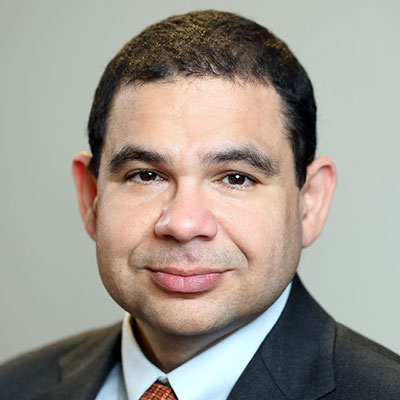
NHGRI Presentation:
Luis Cubano, Ph.D.
Dr. Luis Cubano is a program director in the Division of Genomic Medicine, National Human Genome Research Institute (NHGRI), joining NHGRI in 2019. His main responsibility is to lead NHGRI’s Training and Career Development Program. His interests include increasing the diversity of the biomedical workforce.
Prior to joining NHGRI, Dr. Cubano was a professor and associate dean for research and graduate studies at the Universidad Central del Caribe School of Medicine in Puerto Rico.
Dr. Cubano received his B.S. from Tulane University, his M.S. from the University of Alabama in Huntsville, his Ph.D. from Kansas State University, and completed post-doctoral training at the Tulane University Medical Center.

PHAP Presentation:
Co-Presenter
Delight Satter, MPH
Delight E. Satter, MPH, is the Senior Health Scientist for the Office of Tribal Affairs and Strategic Alliances in Centers for Disease Control and Prevention’s Center for State, Tribal, Local and Territorial Support. Satter’s primary job functions include providing counsel to the CSTLTS director on issues related to complex tribal research, science, and program integration assignments that reflect the priorities, policies, interests, and initiatives of the agency. She also advises the CSTLTS director on the implementation of cultural and diversity assessments while ensuring responsiveness to tribal and stakeholder recommendations pertaining to the data and information needed to accomplish this mission.
Satter has worked on numerous research, programmatic, and policy efforts from a local, state, and national perspective. Prior to joining CDC, she directed the American Indian Research Program, which she founded in 1998 at the UCLA Center for Health Policy Research (the Center), one of the nation’s preeminent policy research centers. Her work at the Center focused on Native cancer, tobacco prevention, and policy opportunities for tribes; an epidemiologic profile of Native elders; evaluation of a Native infant health program targeting at-risk pregnancies and children; and evaluation and technical assistance on youth mental healthcare access. She also served as a key staff member on the development of the California Health Interview Survey.
Satter’s public service activities have been extensive. She served as a board member for the California Pan-Ethnic Health Network and Native American Cancer Research; served on the inaugural U.S. Secretary of Health and Human Services Advisory Committee on Minority Health; is a current and founding member of the Native Research Network Board of Directors and the CDC American Indian, Alaska Native, and Native Hawaiian Coalition; and is past-president of the American Indian, Alaska Native, and Native Hawaiian Caucus of the American Public Health Association.
Prior to joining the Center, Satter was a Public Health Prevention Service fellow with CDC. She was also a Morris K. Udall American Indian Congressional Intern to the Honorable Bruce F. Vento (dec.), and an intern at the Minnesota Department of Public Health. Prior to entering public health, she worked for 15 years in multiple sectors.
Satter received her master’s degree in public health from the University of Minnesota and bachelor’s degree in anthropology from the University of Washington. She is an elected member of the Pi Chapter, Delta Omega Society (honorary public health society). She is a tribal member of the Confederated Tribes of Grand Ronde, Oregon.
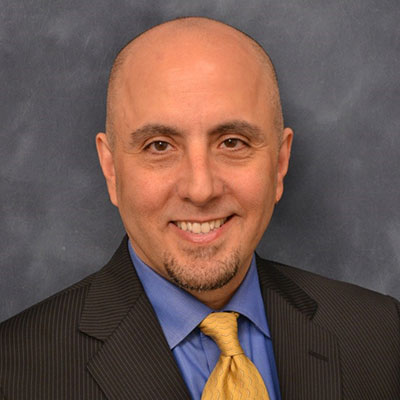
PHAP Presentation:
Co-Presenter
J.T. Theofilos, EMBA
J.T. is the team lead for Partnerships and Education for the Public Health Associate Program (PHAP) within the Center for State, Tribal, Local, and Territorial Support (CSTLTS) at the Centers for Disease Control and Prevention (CDC). He leads training and education program development and implementation, as well as partnerships and stakeholder engagement activities for both internal (CDC) centers, institutes, and offices (CIOs) across the Agency and external (non-CDC) stakeholders including national partners such as the National Association of City and County Health Officials (NACCHO), the Association for State and Territorial Health Officials (ASTHO), and non-governmental organizations (NGOs).
J.T.’s experience is diverse across state and non-governmental organization levels in HIV prevention services, as well as healthcare systems operations and across the acute and post-acute health care continuum. While at CDC, J.T. has worked to design and implement data collection tools and analysis of state, local, and NGO HIV prevention services. He led capacity-building efforts with awardees in public health preparedness and emergency response prior to joining the PHAP leadership team in 2013. “The satisfaction from working with state and local entities can never be under-valued as that is where real public health work takes place.”
J.T. has served as the president of the board of directors for an Atlanta community-based organization, Comizia Care, Inc. that supports single mothers to re-enter the workforce and develop life skills for long-term independence.
J.T. has an executive MBA with a focus in health care systems operations and management from Georgia State University in Atlanta, Georgia with international studies in China, Hong Kong, and Japan; master’s of physical therapy from Thomas Jefferson University in Philadelphia, Pennsylvania; and a bachelor’s degree in psycho-biology from The Ohio State University in Columbus, Ohio.
In early 2016, J.T. traveled throughout Europe, Africa, and the Middle East. He base jumped off a mountain in South Africa, hiked the world’s largest water falls in Zimbabwe, and volunteered at hospitals and CBOs throughout Tanzania and Botswana.

Student Activity:
Dr. Otakuye Conroy-Ben, PhD, MA
Dr. Otakuye Conroy-Ben is an Assistant Professor in the School of Sustainable Engineering and the Built Environment at Arizona State University. Dr. Conroy-Ben received a B.S. in Chemistry from the University of Notre Dame, a M.A. in Analytical Chemistry from the University of Arizona, and a Ph.D. in Environmental Engineering from the University of Arizona. She was a project engineer with the County Sanitation Districts of Los Angeles County, where she studied odor control in wastewater treatment systems. Dr. Conroy-Ben held a postdoctoral co-appointment in the departments of Chemistry and Biochemistry and Soils, Water, and Environmental Science at the University of Arizona. She was Research Fellow at the National Congress of American Indians where she evaluated climate and renewable energy policy and adaptation affecting tribal nations. Dr. Conroy-Ben is also an advisor to the ASU chapter of the American Indian Science and Engineering Society (AISES). Her research focuses on the biological effects of polluted water. Her research interests include analytical and environmental chemistry, environmental endocrine disruption, metal and antibiotic resistance in bacteria, wastewater epidemiology, and water/wastewater treatment and reuse.
Wednesday, August 19, 2020

Opening Prayer & Honor Ceremony:
Jerry Pardilla
Jerry Pardilla has worked in the fields of environmental protection and natural resources management in Indian Country for many years. He has served the United South and Eastern Tribes as director of the Office of Environmental Resource Management since 2012. Jerry is a former Penobscot Tribal chief and was actively involved in revitalizing the Wabanaki Confederacy comprised of Abenaki, Maliseet, Micmac, Passamaquoddy, and Penobscot Tribal Nations. He is passionate about preserving Tribal culture and has been recognized by the Maine Arts Commission as a master artist of Wabanaki traditional music. Jerry is also of Kiowa lineage and in keeping with his family traditions was inducted into the Kiowa Gourd Clan. He is a veteran and served as a commissioned officer in the Maine Army National Guard. Jerry and his wife Marla live in Rio Rancho, New Mexico.
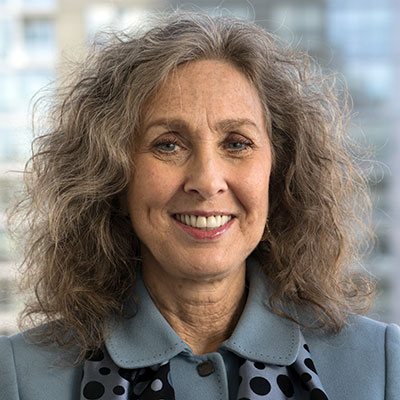
Keynote Speaker:
Dedra Buchwald, M.D.
Dedra Buchwald is a Professor in the Elson S. Floyd College of Medicine at Washington State University and the Founding Director of Partnerships for Native Health, which is one of the nation’s largest research programs on American Indian, Alaska Native, and more recently Native Hawaiian and Pacific Islander Health. Dr. Buchwald is trained in internal medicine and epidemiology and has a broad background in public health. Her work considers health at the level of the individual, the community, and the health system. For 30 years, she was a primary care provider in various cross-cultural settings. Dr. Buchwald has worked with Native communities for more than 25 years. In the last decade, most of her research has moved to conducting culturally informed interventions that target population health disparities and the social determinants of health. Since 1998, Dr. Buchwald has directed the Native Investigator Development Program, which is the nation’s most successful career-training program for American Indian and Alaska Native junior faculty.
Panel Session:
The Intersection of Research with Tribal Sovereignty and University IRBs

Alexandra King, PhD, Nipissing First Nation, Cameco Chair in Indigenous Health and Wellness, University of Saskatchewan
As the inaugural Cameco Chair in Indigenous Health, Dr. King is focused on helping to improve the health and wellness of First Nations people, Inuit, and Métis. Her clinical focus has been HIV/AIDS, hepatitis C (HCV) and HIV/HCV co-infections. She is a Principal Investigator on various Canadian Institutes of Health Research (CIHR) research grants related to Indigenous people and their wellness. Other research interests include Indigenous research ethics, peer navigation/support, and land-based research.
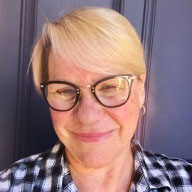
Deborah Morton, PhD, MA, Epidemiologist/Assistant Professor, California State University San Marcos
Dr. Morton teaches courses in public health, epidemiology, and American Indian Health and Wellness. Since 2001, she has been an investigator on several research grants with American Indian populations in California. She is Founder and Chair of the Indian Health Council, Inc. Institutional Review Board which reviews research proposals for tribal communities in southern California. She is Co-PI on the California Native American Research Center in Health (CA-NARCH) funded continuously by Indian Health Service and NIH (NIGMS) since 2001. Among her many publications, one on which she is lead author is entitled, “Creating Research Capacity Through a Tribally-based IRB” in the American Journal of Public Health (2013).
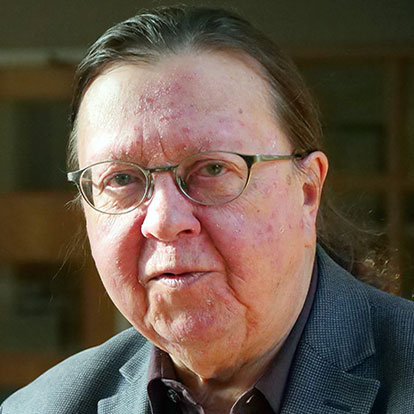
Malcolm King, PhD, Mississaugas of the Credit First Nation, Professor in the Dept. of Community Health & Epidemiology, University of Saskatchewan, Director of the Saskatchewan Centre for Patient-Oriented Research (SCPOR)
From 2009 to 2016, Dr. King led the Canadian Institutes of Health Research (CIHR) Institute of Indigenous Peoples’ Health as its Scientific Director, spearheading the development of a national health research agenda aimed at improving wellness and achieving health equity for First Nations People, Métis, and Inuit in Canada. Dr. King’s international Indigenous health interests include improving Indigenous health through workforce development and provision of culturally appropriate care, and developing Indigenous health indicators to monitor progress in programs aimed at achieving wellness and health equity.
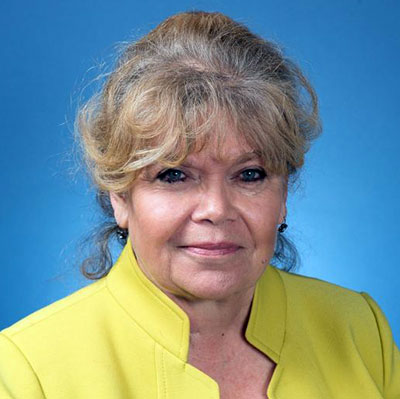
Special Session:
Honor Ceremony
Dr. Felicia Hodge is the recipient of the Dr. Frank C. Dukepoo Award
Frank C. Dukepoo (1943-1999) was a Hopi geneticist, biology professor at the time of his passing, and a strong advocate for Native American education. Born in First Mesa, AZ, he later attended college at Arizona State University where he earned his doctorate in zoology with an emphasis on genetics. He was the first Hopi to earn a PhD in science and the first Native American geneticist.
Before his untimely passing, Dr. Dukepoo founded the National Native American Honor Society of which he was most proud. He recruited 2000 native students from 190 schools throughout the U.S. and Canada and taught them skills to achieve academically and in life.
Dr. Dukepoo’s research focused on albinism among the Hopi. While working with scientists from the National Institutes of Health on the planned Human Genome Diversity Project, he advocated for protection of native people in genetics research.
The Native Research Network presents the Frank C. Dukepoo award to a Native American researcher who exemplifies the work of Dr. Dukepoo in conducting respectful research and in improving the education of Native American students.
***
Speaker:
Dr. Felicia Hodge, DrPH
Felicia Schanche Hodge (Wailaki), DrPH, holds a joint appointment as Professor in the School of Nursing and Professor in the School of Public Health at UCLA. Dr. Hodge is the founder and director of the Center for American Indian/Indigenous Research and Education (CAIIRE) that supports research, evaluation, policy development, education, planning, prevention, and community service activities among indigenous populations. Over the span of her career, Dr. Hodge has held professorships at UC-Berkeley, UC-San Francisco, and the University of Minnesota. Additionally, she has served as Principal Investigator for several large NIH-funded research projects focused on American Indian health issues including cervical cancer, nutrition, smoking cessation, breast cancer, wellness concepts, diabetes, cancer pain and self-management. Her publications include an analysis of urban and rural smoking patterns, an examination of culturally sensitive interventions, and research into the application of the CES-D (depression) scale among American Indian adults, as well as various cancer and diabetes interventions. More recently, she has begun research among the Apache tribe to document dioxin contamination and to identify the experiences of elders who were directly sprayed as a child. Specifically, Dr. Hodge has tested the “Talking Circle” model in group processes and counseling to increase cancer screening among American Indians and other health promotion areas. She developed the train-the-trainer programs for smoking cessation projects in various tribal communities. She has focused on consumer advocacy, participatory research, and culturally sensitive interventions for the American Indian populations throughout her career. She also mentored AI researchers through universities where she worked.
The National Native Health Research Training Initiative partners honor Dr. Felicia Hodge for her work with American Indian communities and present her with the Frank C. Dukepoo Award. The Frank C. Dukepoo Award is an award historically bestowed on a Native American researcher who exemplifies the work of Dr. Dukepoo in conducting respectful research and in improving the education of Native American students. A description of this award is posted on the NRN and NNHRTI websites.
Wednesday, July 15, 2020

Opening Prayer:
Dr. Elmer Guy
Since 2006, Dr. Elmer Guy has served as the president of Navajo Technical University (NTU). Prior to becoming president, Dr. Guy also served NTU as its vice president of academics and student services and its dean of instruction. In 2011 and 2012, under Dr. Guy’s leadership, NTU was named one of the top 120 community colleges in the United States by the Aspen Institute’s College Excellence Program. Before joining NTU, Dr. Guy was appointed by the Navajo Nation president to serve as both the executive director and deputy director of the Navajo Nation Department of Education. During his tenure with the Navajo Nation Department of Education, several needed programs were successfully developed and implemented, including two trusts for the handicapped ($7 million) and for vocational education programs ($6 million); the Navajo Medicine Man Apprentice School; and a comprehensive teacher education program, all of which have been institutionalized and remain in full operation. Dr. Guy earned his undergraduate and doctorate degrees from the University of Arizona, and in between, a graduate degree from the University of San Francisco. Dr. Guy serves on the board of the American Indian High Education Consortium, the American Indian College Fund board, the College Board’s Community Colleges Advisory Panel, as well as other regional and national associations.
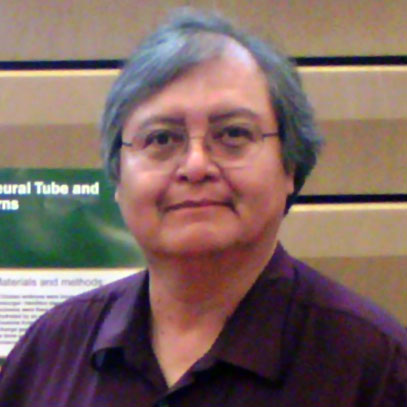
Keynote Speaker:
Wilfred F. Denetclaw, Ph.D.
Wilfred F. Denetclaw, Ph.D., Associate Professor of Biology at San Francisco State University was born and raised on the Navajo Nation in Shiprock, New Mexico. In accordance with traditional Navajo introductions, Dr. Denetclaw is Many Hogans clan, born for the Salt clan and from the Ta’neeszahnii clan (maternal grandfather) and the Tł’ááshchí’í clan (paternal grandfather). He began college at Navajo Community College (now Diné College) and completed a Bachelor of Science degree in Biology in 1983 from Fort Lewis College (Durango, CO). Afterwards, he did doctoral graduate work at the University of California, at Berkeley and was awarded a Doctor of Philosophy in Zoology in 1991. Dr. Denetclaw did post-graduate research for several years with Athena Biotechnology, and in 1994, he was a postdoctoral fellow at the University of California, San Francisco in the Cardiovascular Research Institute. He then worked as a staff scientist in the Department of Anatomy. In 2000, Dr. Denetclaw took a tenure-track Assistant Professorship at San Francisco State University, and in 2006, he was tenured and promoted to Associate Professor. Dr. Denetclaw teaches upper division and graduate courses in cell and molecular biology and has an active research laboratory with undergraduates and Master of Science graduate students. His research investigates messenger molecules in the regulation of vertebrate embryo myogenesis. Dr. Denetclaw has served on many university committees, recently in the SFSU Academic Master Plan and in the Academic Senate. He has served in numerous capacities in departmental committees and is faculty director of the Microscopy and Imaging Core Facility. External activities include service in the American Society for Cell Biology Minorities Affairs Committee (9 years) and in the Society for Advancement of Chicanos and Native Americans (SACNAS) as a past Board Member (1996-98) and as a member of the Council of Senior Advisors (COSA) in SACNAS. Dr. Denetclaw was honored with the 2009 SACNAS Presidential Service Award and the 2004 with the Crossing Borders Award. Dr. Denetclaw has also been profiled in several television documentaries including the 1996 PBS Anthology Series “BreakThrough” profiling 20 American Minority Scientists and in the HHMI documentary “Not So Wild A Dream.” Dr. Denetclaw has been funded by grant awards from the NIH and NSF and his research is currently supported by the UCSF-NSF STC Grant for the Center for Cellular Construction.

Student Session:
Joseph Scott Gladstone, PhD, MPH
Joseph Scott Gladstone, PhD, MPH, (Pííkani, Kainai, Nímíípuu), is an Assistant Professor of Health Services Administration at the University of New Haven. Dr. Gladstone holds a PhD in business administration specializing in American Indian organization management. His work explores influences that tribal cultures have on leadership and organization effectiveness. Before earning his PhD, he built, managed and delivered health promotion programs for the Puyallup Tribe, Tohono O’odham Nation, and the Seattle Indian Health Board. He was a Tribal Leaders Diabetes Committee Technical Workgroup member, served as vice-chairman of the Tucson Indian Center, president of the PhD Project Management Doctoral Student Association. He created and is the emeritus founding chairman of the Native, Aboriginal & Indigenous Peoples Caucus (NAIPC) of the Academy of Management. The NAIPC is a global organization advancing management and business research seeking to improve Native communities worldwide.
Wednesday, June 17, 2020
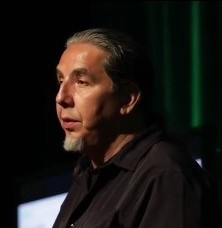
Opening Prayer:
Clayton Shirt, Father, Husband, and Knowledge Keeper
Clayton Shirt is from the Wolf Clan of Saddle Lake Alberta, Treaty 6. Since 2017, Clayton has worked to support spiritual, emotional, personal, and knowledge journeys of students and health researchers at the Waakebiness-Bryce, Dalla Lana School of Public Health at the University of Toronto. He also offers traditional knowledge to Indigenous community members. Clay has worked as a Knowledge Keeper for more than 15+ years in the Native and multi-cultural community in Canada. He was taught in the old way, working for many years with the guidance of a number of First Nation Elders in Canada and the USA. He was taught traditional ceremonies, teachings, circles, one to one work, and to help all people to “walk in a good way” though life.

Opening Remarks:
Rear Adm. Michael D. Weahkee, Director Indian Health Service
Rear Adm. Michael D. Weahkee, an enrolled member of the Zuni Tribe, is the director of the Indian Health Service, an agency within the U.S. Department of Health and Human Services. The IHS is the principal federal health care advocate and provider of health care services for American Indians and Alaska Natives. As director, Rear Adm. Weahkee administers a nationwide health care delivery program that is responsible for providing preventive, curative, and community health care to approximately 2.6 million American Indians and Alaska Natives in hospitals, clinics, and other settings throughout the United States.
Rear Adm. Weahkee previously served as the chief executive officer for the Phoenix Indian Medical Center, the largest federally-operated facility in the Indian Health Service. He was born in the Shiprock Public Health Service Hospital on the Navajo reservation and grew up as a direct service user of the IHS. Michael began his professional health care career in the United States Air Force, as a public health specialist. After completing his Bachelor of Science degree in Health Care Management from Southern Illinois University-Carbondale, he left the Air Force to pursue advanced hospital administration training, receiving both his Master of Health Services Administration and Master of Business Administration degrees from Arizona State University in Tempe, Arizona.
Rear Adm. Weahkee has also served in a variety of different roles at IHS headquarters, including: executive officer for the Office of Clinical and Preventive Services; director of the Management Policy and Internal Control Staff office; and, as the deputy director for personnel functions in the Office of Management Services, charged with management oversight of human resources, commissioned personnel support and program integrity and ethics for the agency. Rear Adm. Weahkee also served on memorandum of agreement to the California Rural Indian Health Board, both as the director of family and community health services and as deputy director of the health board.
Michael has received several public health service honors and awards, including an Exceptional Proficiency Promotion to the rank of captain, two Outstanding Service Medals, and two IHS National Director’s Awards.
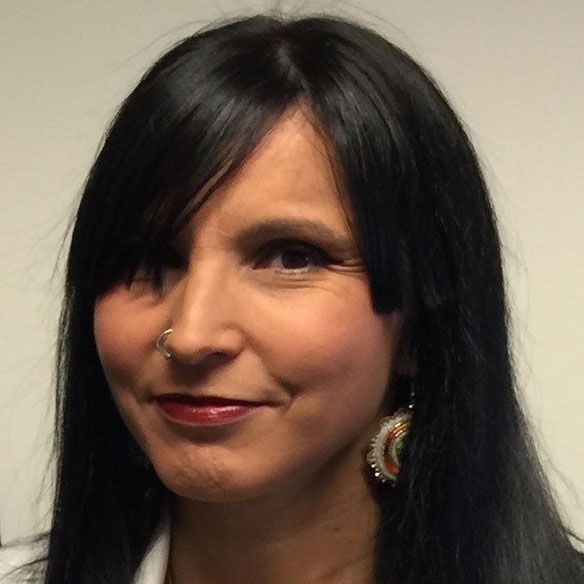
Keynote Speaker:
Dr. Suzanne L. Stewart, Phd, C.Psych
Dr. Stewart is a member of the Yellowknife Dene First Nation. She is a registered psychologist and Director of the Waakebiness-Bryce Institute for Indigenous Health at the Dalla Lana School of Public Health at U of T, where she is an Associate Professor in the Division of Social and Behaviour Health Sciences and the TCP Research Chair in Aboriginal Health. She recently completed the Canada Research Chair in Aboriginal Homelessness and Life Transitions and is considered an international expert in Indigenous homelessness and mental health. Research and teaching interests include Indigenous health and healing with specializations in psychology (homelessness, youth mental health, identity, and work-life development), Indigenous determinants of health, Indigenous pedagogies in higher education and health sciences, and Indigenous research ethics and methodologies. She is committed to advancing Indigenous healing issues in academics, health practice, and policy. Suzanne.stewart@utoronto.ca
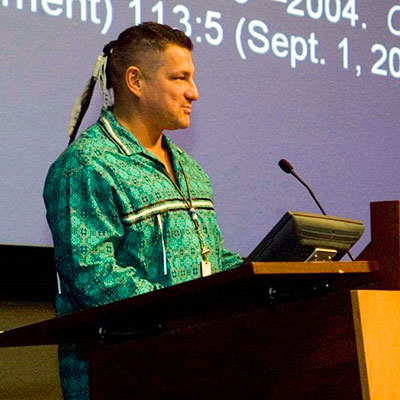
Student Speaker:
Dean S. Seneca, MPH, MCURP, CEO of Seneca Scientific Solutions+
Dean S. Seneca, MPH, MCURP, serves as the CEO of Seneca Scientific Solutions+, a Public Health and Urban and Regional Planning LLC. In this position, he provides capacity building assistance for Tribal Nations in economic and community development that embraces the concepts of “healthy places for healthy people.” Services provided include strategic planning, economic development, public health policy, program & science, epidemiology, grant writing, architectural site planning and building design, performance programing, health research, data management, and program evaluation.Areas of health expertise include chronic and infectious diseases, emergency preparedness and response, environmental health, toxicology and maternal/child health. Mr. Seneca is considered a subject matter expert in America Indian/Alaska Native Health disparities.Previously, Mr. Seneca served as a Senior Health Scientist in the Partnership Support Unit within the Office for State, Tribal, Local and Territorial Support at the Centers for Disease Control and Prevention. His main responsibilities were to build CDC’s national public health partners ability to provide greater capacity building assistance to state, tribal, local, and territorial health departments. Mr. Seneca has over 20 years of experience in the field of infectious disease outbreaks having been a first responder to Anthrax, H1N1, Ebola, Zika and now Covid19. Before arriving to CDC, he held the position of Tribal Planning Director for the Seneca Nation of Indians. He received both of his master’s degree(s) from the University of Hawaii at Manoa.
